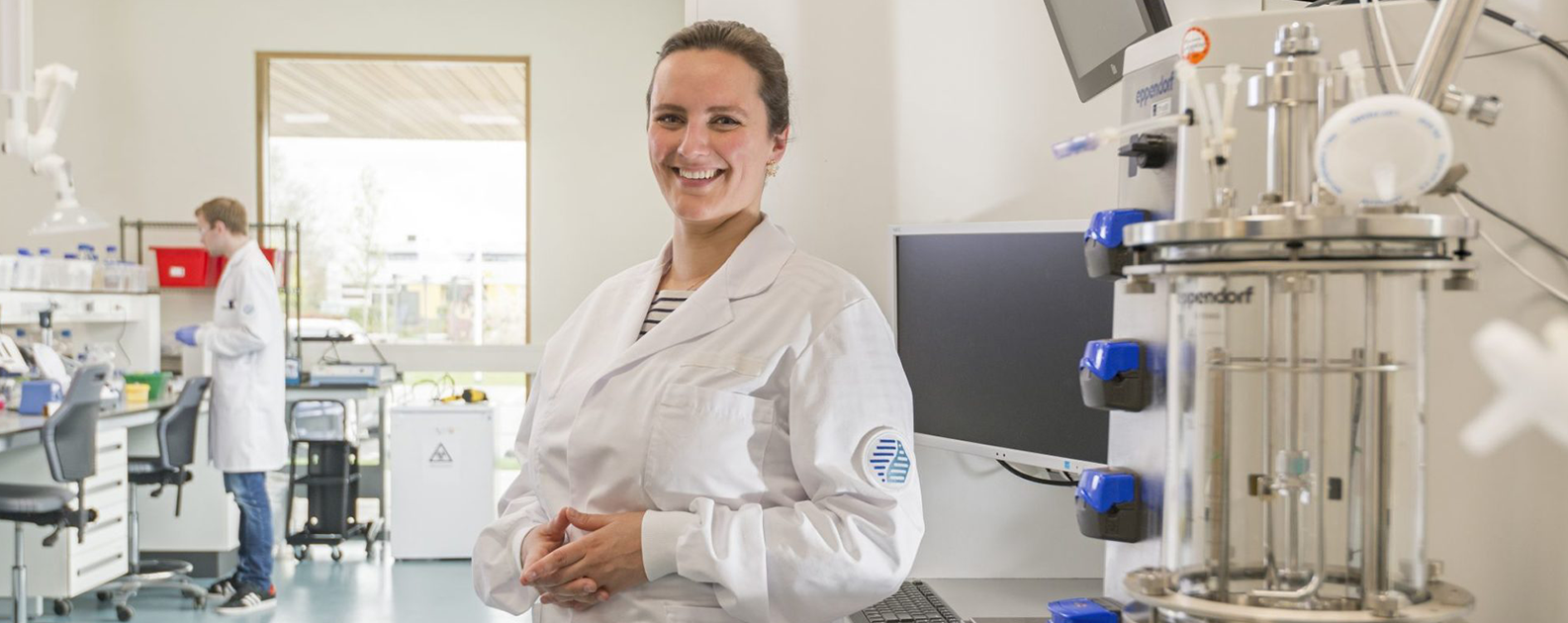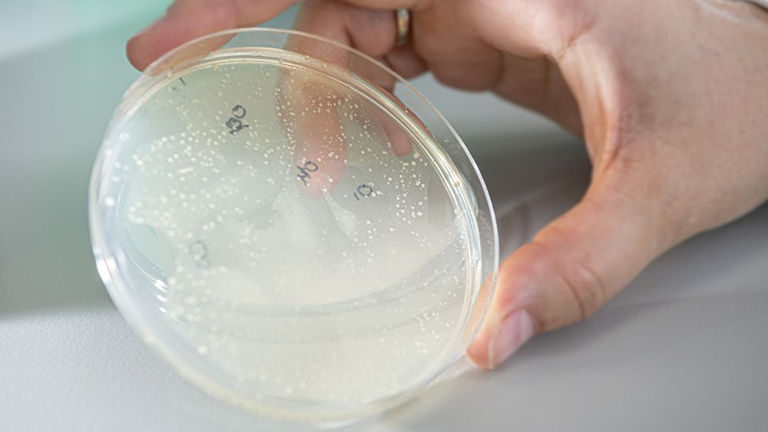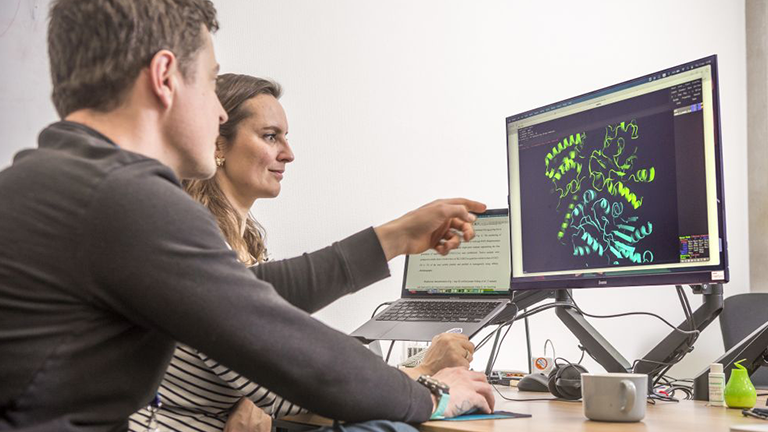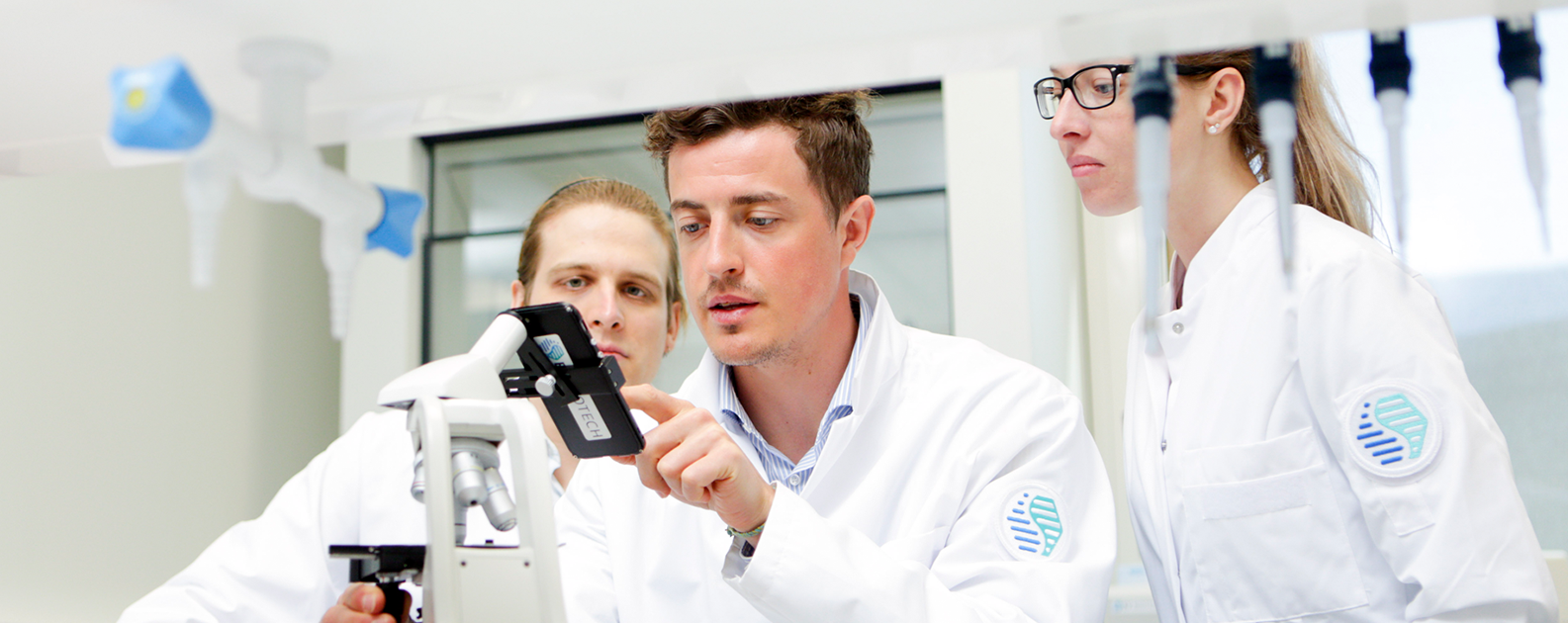Growing in TopDutch: EV Biotech’s Linda Dijkstra on sustainable entrepreneurship, biotech funding and digitalizing biology
EV Biotech is on the rise, with no intention of slowing down. Especially after their recent successful capital round, which will enable the biotechnology start-up to accelerate their role in the transition to a circular economy. “Our goal is to replace polluting production methods with biological processes’.

Linda Dijkshoorn is confident: Fermentation is the future! You’ll see the line repeated in publications about EV Biotech, the successful TopDutch start-up which she founded and acts as CEO. Why’s she so sure?
“Do you drink beer?” asks Linda, laughing. “Then you must know how beer is brewed. What if I tell you now that with the technology of brewing - fermentation that is - you can get almost all of chemical energy climate neutral. That is exactly what we are focusing on with EV Biotech. We genetically modify microorganisms then, using microbial fermentation, we make it possible to produce bio feedstock. Think of proteins, food ingredients, flavorings and fragrance ingredients, ingredients for cosmetics and materials for biological pesticides”.
Mini factories
Microbial fermentation is a biological process in which microorganisms, such as bacteria, fungi and yeasts, break down sugar and convert it into other useful substances. EV Biotech, located at the Zernike Science Park, is engaged in optimizing those fermentation processes for industry. “We deploy those microorganisms as mini factories,” says Linda. “The beauty of those mini-factories is that they multiply at lightning speed. So we can realize an enormous amount of mini-factories at quite a pace, all of which can make ingredients for products. In an organic way, of course. Whereas normally all kinds of fossil fuel-based processes are needed for that. In other words, our goal is to replace polluting production methods with biological processes”.
Our goal is to replace polluting production methods with biological processes.
Linda Dijkstra, Founder and CEO of EV Biotech
The microorganisms, as Linda pointed out, are genetically modified. She understands that this can sometimes cause suspicion among consumers. “But that's not necessary”, she explains, “you don't see the bugs in the final product. We keep them in sealed laboratories. Besides, outside the lab they would die immediately. It's just a very controlled way of, say, giving a yeast one extra function. Suppose we want to make a yeast that produces vanilla. Then we will look at the vanilla orchid, a plant from which vanilla spice is derived, and then investigate which proteins are responsible for making the vanilla molecule. We then try to get those same proteins active in the yeast so that it gets exactly one extra function and nothing else”.

Digital lab
Using microorganisms to make raw materials is not new. More companies and knowledge institutions do that. Only, the experiments are always done in a laboratory. That takes a lot of time and work and, at the same time, a lot of plastics and chemicals. EV Biotech has greatly reduced the amount of time and work by creating a digital laboratory. And yes, that makes the company unique worldwide.
“We use computer models to see what modifications are needed in microorganisms to make certain substances,” Linda explains. “We have linked that digital laboratory to our physical laboratory. And it is precisely in the combination of a physical laboratory and the use of advanced computer models that our strength lies. As a result, you can sometimes eliminate up to 90% of the experiments you would normally do. You can, in short, work much more efficiently and purposefully”.
From frustration to innovation
EV Biotech was founded by Linda in 2018, along with bioinformatician Agnieszka Wegrzyn and pharmacist Sergey Lunev. She got to know both while working on her PhD in Pharmaceutical Biology. “At the time, I had to design one of these microorganisms” Linda looks back. “But no matter what I tried, the microorganism didn't do what it was supposed to do. The critter was really struggling.” She consulted professors and postdocs about how to tackle the problem. Each time the answer was the same: Try to figure out where it could go wrong and, based on that, devise and perform an experiment.
“Fifteen experiments later, I still didn't have a solution”, Linda smiles. “I was getting more and more frustrated. During that period I came into contact with Agnieszka. She was into computational modeling, a technique that uses computer programs and simulations to mimic and analyze real systems, phenomena or processes. Couldn't we do that for a microorganism? I asked. Well, that seemed like a fun experiment to her. Within a week, Agnieszka showed me that I had wasted a year and a half of my life on those fifteen experiments. The idea for EV Biotech was born”.
As an entrepreneur, I like the idea of using science to reduce the negative impact of humans on the environment.
Linda Dijkstra, Founder and CEO of EV Biotech
Sustainable entrepreneurship
She may be a scientist, she says, but at heart she actually feels more like an entrepreneur. For example, Linda paid for her master's degree with a homework institute she set up herself. “During my bachelor I already knew that one day I wanted to set up a biotech company. What appeals to me so much in entrepreneurship? I find the valorization of knowledge particularly interesting. As an entrepreneur, I like the idea of using science to reduce the negative impact of humans on the environment. Important too, in view of the growing world population. We really need to come up with other methods and techniques to meet consumption needs. With the technologies we have now, we will not succeed. At least not without placing a disproportionate burden on nature and the environment”.
EV Biotech currently has about 20 employees and is making solid progress. Several customer projects have already been carried out with production methods for alternative proteins, bioplastics and small molecules. The start-up just keeps on going. Fortunately, because their ambition is huge. “We want to become the largest strain developer in Europe and then the world,” Linda emphasizes. “But finance is and remains a huge challenge in biotechnology. It sometimes takes months before a deal is finalized. While having a laboratory is far from cheap. So you have to ensure a substantial and continuous source of income. We just don't have that yet. But for a biotech company we are still very young”.

Funding Round
EV Biotech was funded early on by Carduso, RUG Ventures and Triad Investment. Last spring, the three shareholders decided to invest in the company again. This time together with NOM, Voyagers Climate-Tech Fund, Blue Horizon and a number of private investors. The funding round was led and initiated by Future Food Fund from Utrecht.
“They are parties you would like to have inside,” says Linda. “Moreover, parties who really believe in us and who also have the same mindset. The funding gives us time and space to optimize the existing technology and market EV Biotech even better. We may be well-known, but that doesn't mean you immediately have the trust of customers. For that, you first have to build a nice track record. That is what we are doing now”.
Leading the transition
Indeed, EV Biotech is making great strides to show that fermentation really is the future. On the road to a circular economy, of course, there are still some bumps to be taken by companies. A lack of money and guts, for example. “Companies first have to dare to start working with a technology like fermentation,” Linda says. “Then money also has to be released to make such a technology applicable for specific purposes. But we like to take the lead in the transition from polluting production methods to cleaner alternatives. Besides: we have shown that it can be done”.
Call me back
Please feel free to fill out the “Call Me Back” form below, and we’ll be delighted to get in touch with you at your convenience.

